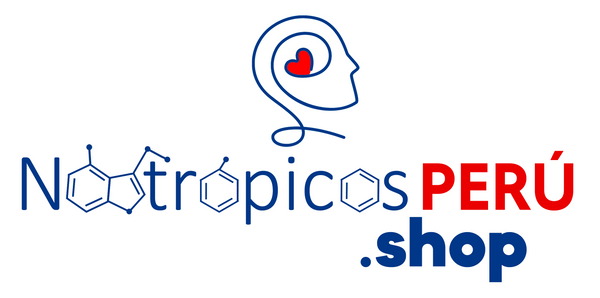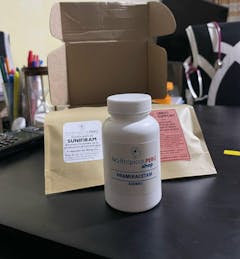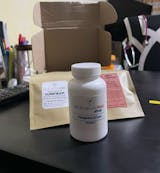Optimización de la función mitocondrial y producción de energía
Dosificación: Para mejorar la producción de energía celular y la eficiencia mitocondrial, la dosis recomendada es de 1 cápsula de 500mg en la mañana y otra cápsula de 500mg al mediodía. En casos donde se requiera un soporte más profundo, se puede aumentar a 3 cápsulas diarias (1 en la mañana, 1 al mediodía y 1 en la tarde).
Frecuencia de administración: Se recomienda tomar en ayunas o al menos 30 minutos antes de una comida para favorecer su absorción y biodisponibilidad. Si se experimenta malestar gástrico, se puede ingerir con una comida baja en grasas.
Duración total del ciclo: Para optimizar la función mitocondrial a largo plazo, se recomienda seguir un ciclo de 10 a 12 semanas, seguido de una pausa de 2 a 4 semanas antes de retomar el protocolo.
Regulación de la sensibilidad a la insulina y metabolismo de la glucosa
Dosificación: Para mejorar la captación de glucosa y la sensibilidad a la insulina, la dosis recomendada es de 2 cápsulas de 500mg al día (una en la mañana y otra en la tarde, antes de las comidas principales). En casos de resistencia a la insulina más marcada, la dosis puede aumentarse a 3 cápsulas diarias (una antes de cada comida principal).
Frecuencia de administración: Se debe consumir 30 a 60 minutos antes de las comidas principales, ya que su acción en la señalización de la insulina y la captación de glucosa es más efectiva cuando se toma en este intervalo. Se recomienda evitar tomarlo junto con fuentes altas en proteínas, ya que pueden competir por su absorción.
Duración total del ciclo: Se recomienda seguir un ciclo de 12 semanas, seguido de una pausa de 2 a 3 semanas antes de retomar el protocolo para evitar adaptación metabólica.
Neuroprotección y apoyo en la función cognitiva
Dosificación: Para proteger el sistema nervioso y mejorar la memoria y la concentración, la dosis recomendada es de 1 cápsula de 500mg en la mañana y otra cápsula de 500mg al mediodía. En casos donde se busca una mayor neuroprotección, se puede aumentar a 3 cápsulas diarias.
Frecuencia de administración: Se recomienda tomar en ayunas o al menos 30 minutos antes de una comida, ya que su absorción y efecto neuroprotector se maximizan cuando no hay interferencia de otros nutrientes.
Duración total del ciclo: Para mantener la protección neuronal de manera continua, se recomienda un ciclo de 12 a 16 semanas, seguido de una pausa de 4 semanas antes de retomar el protocolo.
Reducción de la inflamación y protección cardiovascular
Dosificación: Para modular la inflamación y mejorar la función endotelial, la dosis recomendada es de 2 cápsulas de 500mg al día (una en la mañana y otra en la tarde). En casos donde se requiere un mayor control de la inflamación, se puede aumentar a 3 cápsulas diarias.
Frecuencia de administración: Debe tomarse 30 a 60 minutos antes de las comidas para favorecer su acción antiinflamatoria y mejorar la biodisponibilidad. Se recomienda evitar tomarlo con fuentes altas en carbohidratos refinados, ya que pueden reducir su efectividad.
Duración total del ciclo: Para obtener beneficios sostenidos en la regulación inflamatoria, se recomienda un ciclo de 12 semanas, seguido de una pausa de 2 semanas antes de reiniciar el tratamiento.
Apoyo en la detoxificación de metales pesados
Dosificación: Para favorecer la eliminación de metales pesados, la dosis recomendada es de 3 cápsulas de 500mg al día (una en la mañana, una al mediodía y una en la tarde). En casos donde se busca una detoxificación más intensiva, se puede aumentar a 4 cápsulas diarias.
Frecuencia de administración: Se recomienda tomar en ayunas o al menos 30 minutos antes de una comida, ya que su capacidad para quelar metales pesados se optimiza cuando no compite con otros nutrientes en el tracto digestivo. Es importante acompañar el tratamiento con un adecuado consumo de agua para facilitar la eliminación de toxinas.
Duración total del ciclo: Se recomienda un protocolo de 8 a 10 semanas, seguido de una pausa de 4 semanas antes de retomar el proceso de detoxificación.
Soporte en la recuperación muscular y reducción del estrés oxidativo post-ejercicio
Dosificación: Para reducir el daño oxidativo inducido por el ejercicio y mejorar la recuperación, la dosis recomendada es de 2 cápsulas de 500mg al día (una en la mañana y otra después del entrenamiento). En personas con entrenamientos de alta intensidad, se puede aumentar a 3 cápsulas diarias (una antes del entrenamiento y dos después).
Frecuencia de administración: Se recomienda tomar en ayunas o al menos 30 minutos antes del entrenamiento para mejorar la producción de energía y después del ejercicio para favorecer la recuperación muscular.
Duración total del ciclo: Para un soporte continuo en el rendimiento físico, se recomienda un ciclo de 12 semanas, seguido de una pausa de 2 semanas antes de retomar el protocolo.
Optimización de la longevidad y envejecimiento saludable
Dosificación: Para promover el envejecimiento saludable y la longevidad celular, la dosis recomendada es de 1 cápsula de 500mg en la mañana y otra en la tarde. Para un soporte más avanzado, se puede aumentar a 3 cápsulas diarias.
Frecuencia de administración: Se recomienda tomar en ayunas o 30 minutos antes de una comida para una mejor absorción. Se recomienda combinar con otros compuestos sinérgicos como Carnosina y Coenzima Q10 para potenciar su efecto protector en la longevidad.
Duración total del ciclo: Para un mantenimiento prolongado de los efectos antienvejecimiento, se recomienda un ciclo de 16 semanas, seguido de una pausa de 4 semanas antes de reiniciar el protocolo.
Protección hepática y metabolismo de lípidos
Dosificación: Para mejorar la función hepática y reducir la acumulación de grasa en el hígado, la dosis recomendada es de 2 cápsulas de 500mg al día (una en la mañana y otra en la tarde). En personas con hígado graso avanzado, se puede aumentar a 3 cápsulas diarias.
Frecuencia de administración: Se recomienda tomar en ayunas o 30 minutos antes de las comidas, ya que su efecto en el metabolismo lipídico se optimiza cuando no hay interferencias con la digestión de grasas.
Duración total del ciclo: Se recomienda un protocolo de 12 semanas, seguido de una pausa de 3 semanas antes de continuar el tratamiento.
Reducción del daño oxidativo en enfermedades neurodegenerativas
Dosificación: Para brindar soporte en enfermedades neurodegenerativas, la dosis recomendada es de 3 cápsulas de 500mg al día (una en la mañana, una al mediodía y una en la tarde). En casos donde se requiera un mayor efecto neuroprotector, se puede aumentar a 4 cápsulas diarias.
Frecuencia de administración: Se recomienda tomar en ayunas o al menos 30 minutos antes de una comida, ya que su acción antioxidante es más efectiva cuando no hay interferencias en la absorción.
Duración total del ciclo: Para una protección neuronal sostenida, se recomienda un ciclo de 16 semanas, seguido de una pausa de 4 semanas antes de reiniciar el protocolo.



















